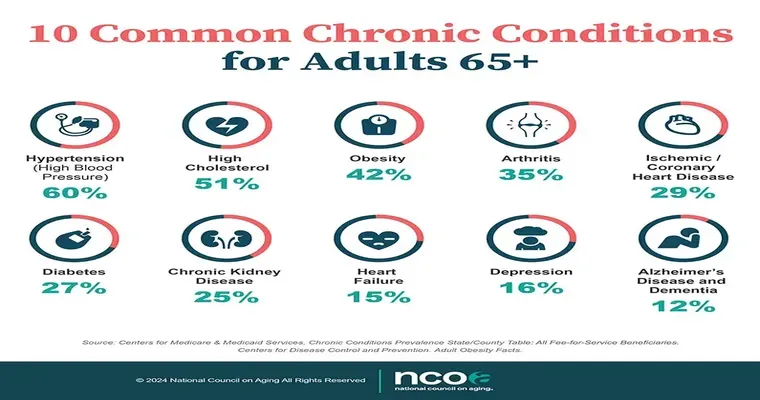As flu season approaches, individuals with "chronic health conditions" face a heightened risk of complications. The interaction between the "influenza virus" and pre-existing health issues can lead to severe consequences. Conditions such as "diabetes", "heart disease", and "respiratory disorders" can exacerbate the effects of the flu, making it essential for those affected to take preventive measures.
Understanding Chronic Health Conditions
Chronic health conditions are long-lasting diseases that can significantly impact daily life. Common examples include asthma, chronic obstructive pulmonary disease (COPD), heart disease, and diabetes. These conditions often weaken the immune system, making individuals more susceptible to infections like the flu. When a person with a chronic condition contracts the flu, their body may struggle to fight off the virus, leading to severe complications such as pneumonia, hospitalization, or even death.
The Impact of the Flu on Chronic Conditions
The "flu virus" can trigger a cascade of health issues for those with chronic conditions. For instance, individuals with diabetes may experience fluctuations in blood sugar levels due to the body's stress response to the infection. Similarly, those with heart disease may find their condition worsened by the increased strain on the cardiovascular system caused by fever, dehydration, and inflammation.
Prevention is Key
Preventing the flu is crucial for individuals with chronic health conditions. Vaccination is one of the most effective ways to protect against the flu. The "flu vaccine" not only reduces the risk of contracting the virus but also minimizes the chances of severe complications. Health professionals recommend that individuals with chronic conditions receive the flu vaccine annually, ideally before the flu season begins.
In addition to vaccination, practicing good hygiene can help reduce the risk of flu transmission. Regular handwashing, avoiding close contact with sick individuals, and maintaining a healthy lifestyle through balanced nutrition and regular exercise are all essential steps in prevention.
Recognizing Symptoms Early
For those with chronic health conditions, recognizing flu symptoms early is critical. Common symptoms include fever, cough, sore throat, body aches, and fatigue. If these symptoms arise, it is essential to seek medical advice promptly. Early intervention can lead to better outcomes and prevent complications.
Conclusion
The combination of chronic health conditions and the flu can be deadly. It is vital for individuals with these conditions to prioritize their health during flu season. Taking preventive measures, getting vaccinated, and recognizing symptoms early can significantly reduce the risk of serious complications. By staying informed and proactive, those with chronic health conditions can navigate flu season with greater confidence and safety.





